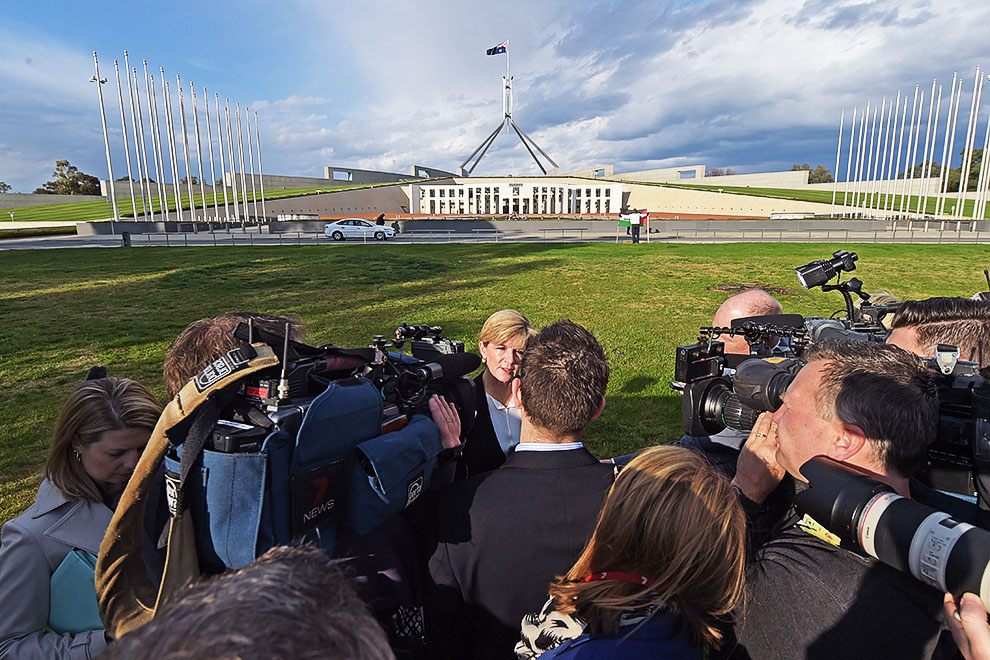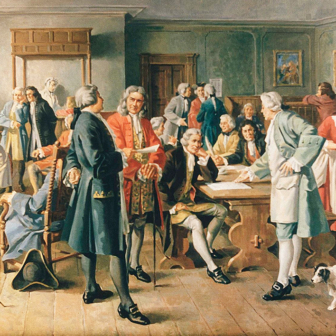Malcolm Turnbull’s defeat of Tony Abbott was the seventy-second leadership coup among major political parties at state or federal level since 1970 – a remarkable figure indicative of an underlying volatility in Australian politics. In each case the leader was defeated by colleagues in a party room vote or resigned under duress when it became clear that continuing in the role was no longer viable.
As the list below shows, these coups have become increasingly common. In the 1960s, there were none; in the 1970s, just ten; in the 1980s, eighteen. The figure dipped slightly to thirteen in the 1990s, but in the fifteen years of this century, thirty-one leaders have been felled, or an average of two a year.
Not surprisingly, coups are much rarer in government than in opposition. Of the seventy-two successful challenges, only seventeen occurred in the main governing party. If we exclude the two coups in the Queensland Liberal Party when it was the junior partner to Bjelke-Petersen’s Nationals, forcible leadership changes are three times as common in opposition.
Abbott’s supporters might have been imploring their colleagues not to repeat the Rudd–Gillard conflicts, but leadership coups have in fact been more common on the conservative side of politics – forty-nine to Labor’s twenty-three – perhaps because the Liberals have spent more time in opposition in recent decades.
Within this broad picture of increasingly vulnerable leaders, Tony Abbott has become the fourth member of what is still a very select group – leaders who won government from opposition but were overthrown during their first term. Dean Brown, the moderate state Liberal leader, won a crushing victory in South Australia in 1993 but was replaced in 1996 by his conservative factional opponents in the party. Kevin Rudd sufficiently alienated his colleagues to be overthrown even after bringing Labor back from eleven years in opposition with a strong victory in 2007. The Victorian Liberals replaced Ted Baillieu with Denis Napthine before going on to defeat at last year’s state election.
The main driver of the increasing number of leadership challenges has been a more ruthless pursuit of electoral success. Yet, among governments at least, changing leaders rarely changes electoral fortunes for the better. Of the sixteen governments that went to an election with a new leader, twelve lost office. Many of them were doomed anyway, of course, but in few if any of these cases did a new leader help them avoid that fate. The worst case was the NSW Labor government, which went through two leadership coups in one electoral cycle (2007–11), moving from Morris Iemma to Nathan Rees and then from Rees to Kristina Keneally. These were symptoms of a decaying government, and the two-party-preferred swing against Labor in 2011 was a massive 16.9 per cent, with Labor’s primary vote dropping to 25.6 per cent.
Of the other four cases, only Paul Keating (after deposing Bob Hawke) was a clear winner, going on to prevail at the “unwinnable” 1993 election before suffering a large defeat in 1996. Three others resulted in the government moving from a majority to a hung parliament, but managing to form a minority government. Julia Gillard (post-Rudd in 2010) and John Olsen (post-Brown in South Australia in 1997) went from having a comfortable first-term majority to a hung parliament at their first attempt at re-election. In perhaps the gentlest of the coups, in which long-serving South Australian Labor premier Mike Rann was forced to retire six months earlier than he had planned to, his successor Jay Weatherill, already on a tight margin, managed to hold on to minority government at the next election.
Why are leadership coups in government rarely electorally successful? For one thing, they seem to overturn the will of the people. This is the government and leader we elected, voters might well say; by what right do you change it? This argument has been used ceaselessly but unavailingly by Abbott supporters over the past six months.
Changing the leader also distances the governing party from its own record, good and bad. The party may be seeking a sense of renewal and a fresh direction, but if many people within the government have deep concerns about its performance then many voters might take that as a cue.
Turnbull’s defeat of Abbott will be compared most frequently with Gillard’s overthrowing of Rudd, a brilliantly executed strategic stupidity that ruined two political careers in one night and made Labor’s task of staying in government much more difficult. In that case, the key plotters seem to have assumed that the public would immediately accept the change and that Rudd would simply disappear. Instead, of course, he was intent on revenge, and the means by which Gillard became leader haunted the whole of her prime ministership.
The change of leadership also made Labor’s strategic position almost impossible. Having disposed of its leader, the government couldn’t (or at least didn’t) run on its record. It could not highlight the way it had brought the country through the global financial crisis in such relatively good shape. Instead, it had to run a much more negative campaign in 2010, based on the spectre of a government headed by Tony Abbott, which arguably made that tactic much less effective when it was re-run three years later.
Several key factors distinguish the two coups. The first is that there has been a much longer build-up of discontent with Abbott, from the time of his “near death” political experience last February, when a spill motion against him achieved substantial minority support. His is the first government in living memory to drop behind in the polls just three months after its election victory, and the government has not led Labor in the overall polling since then. “We have lost thirty Newspolls in a row,” Turnbull observed in announcing his challenge.
Moreover Abbott’s own personal approval ratings have been consistently negative, while Turnbull’s figures are much better and he appeals to a much broader part of the political spectrum. Part of the reason for the government’s unpopularity is its own record – most spectacularly its first budget, a blatant exercise in breaking promises.
Turnbull has also learnt from another Gillard mistake. She rushed into an election, ostensibly to obtain her own mandate. Postponing an election would have given Labor more time to project a sense of stability, and voters more time to become used to her being prime minister. Turnbull has already signalled that he intends to run the full period, and this will give him more opportunity to establish his own record.
When Gillard defeated Rudd she was creating a monster intent on revenge. It is unlikely that Abbott will “do a Rudd.” Nevertheless there is a hard core of social conservatives and climate change sceptics in the parliamentary party who remain hostile to Turnbull. Maintaining the unity of the Liberal Party, and of the Coalition, while moving towards policies he favours, will be Turnbull’s key challenge. •
Successful leadership challenges 1971–2015
Year/ Incumbent/ Successor/ Party/ Status/ Sphere
1971/ Gorton/ McMahon/ Liberal/ Government/ Federal
1972/ Hall/ Eastick/ Liberal/ Opposition/ SA
1973/ Hills/ Wran/ Labor/ Opposition/ NSW
1974/ Houston/ Tucker/ Labor/ Opposition/ Queensland
1975/ Snedden/ Fraser/ Liberal/ Opposition/ Federal
1975/ Eastick/ Tonkin/ Liberal/ Opposition/ SA
1976/ Lewis/ Willis/ Liberal/ Government/ NSW
1977/ Willis/ Coleman/ Liberal/ Opposition/ NSW
1978/ Knox/ Edwards/ Liberal/ Government*/ Queensland
1978/ Jamieson/ Davies/ Labor/ Opposition/ WA
1981/ Mason/ McDonald/ Liberal/ Opposition/ NSW
1981/ Lowe/ Holgate/ Labor/ Government/ Tasmania
1981/ Wilkes/ Cain/ Labor/ Opposition/ Victoria
1981/ Hamer/ Thompson/ Liberal/ Government/ Victoria
1981/ Davies/ Burke/ Labor/ Opposition/ WA
1982/ Casey/ Wright/ Labor/ Opposition/ Queensland
1983/ Hayden/ Hawke/ Labor/ Opposition/ Federal
1983/ Dowd/ Greiner/ Liberal/ Opposition/ NSW
1983/ Edwards/ White/ Liberal/ Government*/ Queensland
1984/ O’Connor/ Hassell/ Liberal/ Opposition/ WA
1985/ Peacock/ Howard/ Liberal/ Opposition/ Federal
1986/ Hassell/ MacKinnon/ Liberal/ Opposition/ WA
1987/ Bjelke-Petersen/ Ahern/ National/ Government/ Queensland
1988/ Warburton/ Goss/ Labor/ Opposition/ Queensland
1988/ Batt/ Field/ Labor/ Opposition/ Tasmania
1989/ Howard/ Peacock/ Liberal/ Opposition/ Federal
1989/ Ahern/ Cooper/ National/ Government/ Queensland
1989/ Kennett/ Brown/ Liberal/ Opposition/ Victoria
1990/ Cain/ Kirner/ Labor/ Government/ Victoria
1990/ Dowding/ Lawrence/ Labor/ Government/ WA
1991/ Hawke/ Keating/ Labor/ Government/ Federal
1991/ Beanland/ Sheldon/ Liberal/ Opposition/ Queensland
1991/ Gray/ Groom/ Liberal/ Opposition/ Tasmania
1991/ Brown/ Kennett/ Liberal/ Opposition/ Victoria
1992/ Baker/ Brown/ Liberal/ Opposition/ SA
1992/ MacKinnon/ Court/ Liberal/ Opposition/ WA
1994/ Hewson/ Downer/ Liberal/ Opposition/ Federal
1995/ Downer/ Howard/ Liberal/ Opposition/ Federal
1996/ Brown/ Olsen/ Liberal/ Government/ SA
1998/ Collins/ Chikarovski/ Liberal/ Opposition/ NSW
1999/ Brumby/ Bracks/ Labor/ Opposition/ Victoria
2001/ Napier/ Cheek/ Liberal/ Opposition/ Tasmania
2001/ Court/ Barnett/ Liberal/ Opposition/ WA
2002/ Chikarovski/ Brogden/ Liberal/ Opposition/ NSW
2002/ Napthine/ Doyle/ Liberal/ Opposition/ Victoria
2003/ Crean/ Latham/ Labor/ Opposition/ Federal
2003/ Horan/ Springborg/ National/ Opposition/ Queensland
2005/ Latham/ Beazley/ Labor/ Opposition/ Federal
2005/ Brogden/ Debnam/ Liberal/ Opposition/ NSW
2006/ Beazley/ Rudd/ Labor/ Opposition/ Federal
2006/ Quinn/ Flegg/ Liberal/ Opposition/ Queensland
2006/ Doyle/ Baillieu/ Liberal/ Opposition/ Victoria
2006/ Birney/ Omodei/ Liberal/ Opposition/ WA
2007/ Debnam/ O’Farrell/ Liberal/ Opposition/ NSW
2007/ Flegg/ McCardle/ Liberal/ Opposition/ Queensland
2007/ Evans/ Hamilton-Smith/ Liberal/ Opposition/ SA
2008/ Nelson/ Turnbull/ Liberal/ Opposition/ Federal
2008/ Iemma/ Rees/ Labor/ Government/ NSW
2008/ Rees/ Keneally/ Labor/ Government/ NSW
2008/ Seeney/ Springborg/ National/ Opposition/ Queensland
2008/ Omodei/ Buswell/ Liberal/ Opposition/ WA
2008/ Buswell/ Barnett/ Liberal/ Opposition/ WA
2009/ Turnbull/ Abbott/ Liberal/ Opposition/ Federal
2009/ Hamilton-Smith/ Redmond/ Liberal/ Opposition/ SA
2010/ Rudd/ Gillard/ Labor/ Government/ Federal
2011/ Langbroek/ Newman/ Liberal/ Opposition/ Queensland
2011/ Rann/ Weatherill/ Labor/ Government/ SA
2012/ Redmond/ Marshall/ Liberal/ Opposition/ SA
2013/ Gillard/ Rudd/ Labor/ Government/ Federal
2013/ Baillieu/ Napthine/ Liberal/ Government/ Victoria
2014/ Robertson/ Foley/ Labor/ Opposition/ NSW
2015/ Abbott/ Turnbull/ Liberal/ Government/ Federal




